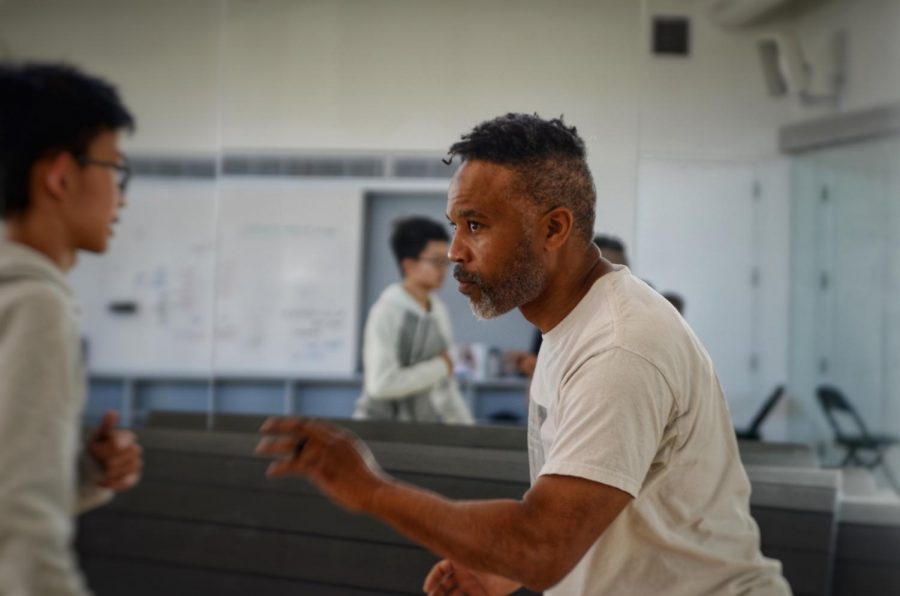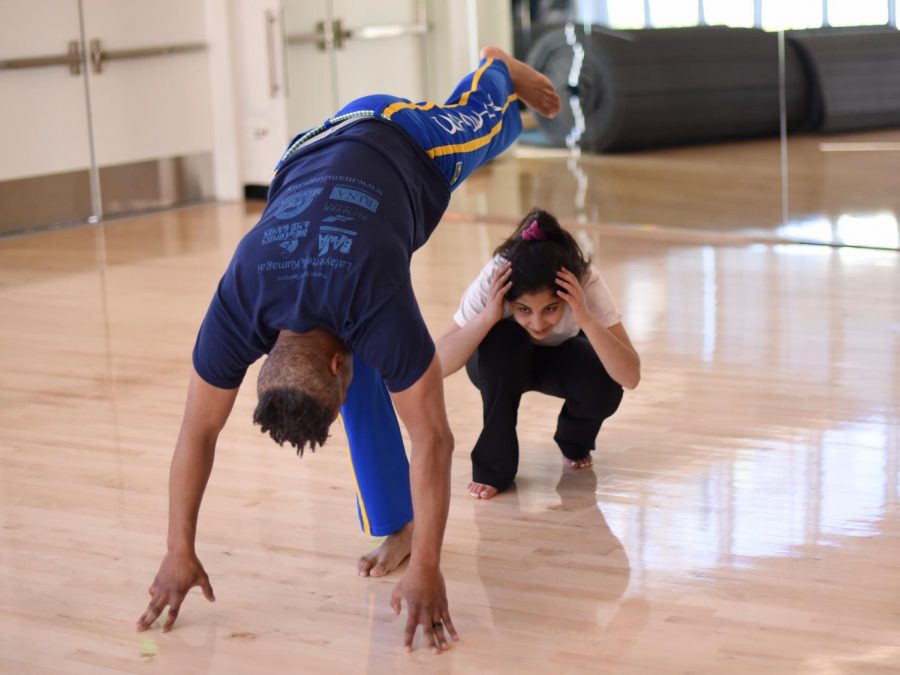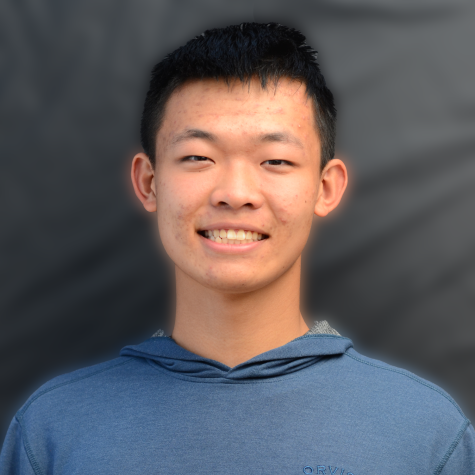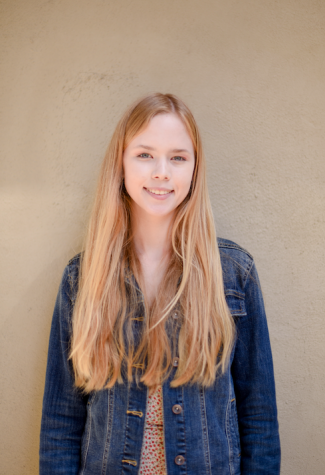Bringing Capoeira to Life
Mestre Loren Due gives back to the community through the art of movement
Capoeira teacher Loren Due (’85) stands in a ready stance as he faces off against Johnny Wang (12).
April 25, 2019
Intense music plays in the background as two students bend down to touch their teacher’s feet, surrounded by their peers. They then proceed to shake hands, acknowledging each other with respect as they were taught. Suddenly, the two cartwheel into the center of the “roda” or circle of people and engage in Capoeira, a martial art that fuses aspects of dance, acrobatics and music. Overseeing this match is Harker alumnus Loren Due, the Capoeira instructor who has been at Harker for almost 15 years, educating his students in the Brazilian martial art.
Capoeira originated 400 years ago in Brazil, brought there by African slaves. The sport consists of performing complex maneuvers such as spins, kicks and cartwheels. The slaves would practice the art to hide their intentions of defending themselves from their masters with music. After learning about the sport from magazines and movies, Due enrolled in a Capoeira school in San Jose and never looked back. Since 1995, Due has continued to practice and teach Capoeira, even though not many tournaments are offered in America. In addition to teaching at Harker, he also instructs at the academy, Capoeira of San Jose.
“I like to teach Capoeira because I need to give back to the art. After a certain point, Capoeira becomes a part of you and every day of your life,” Due said. “Everything translates to Capoeira; I want to carry on the art and pass on my knowledge to other people so that they can discover Capoeira by themselves and what a fantastic art form that it is.”
To his students, Due is known as “Mestre Poeta,” which exemplifies Capoeira’s roots as the sport had once been outlawed in Brazil for its presence in gang violence, and participants were forced to take on aliases. Students in the class find Due’s lessons thoroughly enjoyable as his nature provides a carefree setting for them to learn and play.
“Mestre is really chill. I like that if I am doing something wrong, he’ll tell me. He’s a really nice person, and he creates a relaxing environment that takes my stress away,” freshman Melody Yazdi, one of Due’s students, said. “He always jokes around, and everyone in the class is happy when we are there.”
Even outside of school, Due incorporates Capoeira into his daily life. Since he was born, Kai Due (9) has been listening to Capoeira music and watching his dad execute moves at home. As a baby, Kai was often brought to the academy and would try to copy the movements performed.
“It’s weird having someone like your father showing you how to do something that you wouldn’t think he would be able to do,” Kai said. “It’s awe-inspiring really. I saw him do a backflip once. That was insane.”
Due hopes that he can share the joy of martial arts and help his pupils reach their goals. Over the course of the class, he emphasizes that students learn the values of determination and grit, as well as understand their personal capabilities.
“One thing I hope they gain are life lessons. If they fall down, they get back up. If something’s hard and they can’t do it, they work and persevere and can see the results of their hard work and effort,” Due said. “Physically, I want them to move and get in touch with their bodies: their balance, their coordination, their strength, their flexibility.”


















![“[Building nerf blasters] became this outlet of creativity for me that hasn't been matched by anything else. The process [of] making a build complete to your desire is such a painstakingly difficult process, but I've had to learn from [the skills needed from] soldering to proper painting. There's so many different options for everything, if you think about it, it exists. The best part is [that] if it doesn't exist, you can build it yourself," Ishaan Parate said.](https://harkeraquila.com/wp-content/uploads/2022/08/DSC_8149-900x604.jpg)




![“When I came into high school, I was ready to be a follower. But DECA was a game changer for me. It helped me overcome my fear of public speaking, and it's played such a major role in who I've become today. To be able to successfully lead a chapter of 150 students, an officer team and be one of the upperclassmen I once really admired is something I'm [really] proud of,” Anvitha Tummala ('21) said.](https://harkeraquila.com/wp-content/uploads/2021/07/Screen-Shot-2021-07-25-at-9.50.05-AM-900x594.png)







![“I think getting up in the morning and having a sense of purpose [is exciting]. I think without a certain amount of drive, life is kind of obsolete and mundane, and I think having that every single day is what makes each day unique and kind of makes life exciting,” Neymika Jain (12) said.](https://harkeraquila.com/wp-content/uploads/2017/06/Screen-Shot-2017-06-03-at-4.54.16-PM.png)








![“My slogan is ‘slow feet, don’t eat, and I’m hungry.’ You need to run fast to get where you are–you aren't going to get those championships if you aren't fast,” Angel Cervantes (12) said. “I want to do well in school on my tests and in track and win championships for my team. I live by that, [and] I can do that anywhere: in the classroom or on the field.”](https://harkeraquila.com/wp-content/uploads/2018/06/DSC5146-900x601.jpg)
![“[Volleyball has] taught me how to fall correctly, and another thing it taught is that you don’t have to be the best at something to be good at it. If you just hit the ball in a smart way, then it still scores points and you’re good at it. You could be a background player and still make a much bigger impact on the team than you would think,” Anya Gert (’20) said.](https://harkeraquila.com/wp-content/uploads/2020/06/AnnaGert_JinTuan_HoHPhotoEdited-600x900.jpeg)

![“I'm not nearly there yet, but [my confidence has] definitely been getting better since I was pretty shy and timid coming into Harker my freshman year. I know that there's a lot of people that are really confident in what they do, and I really admire them. Everyone's so driven and that has really pushed me to kind of try to find my own place in high school and be more confident,” Alyssa Huang (’20) said.](https://harkeraquila.com/wp-content/uploads/2020/06/AlyssaHuang_EmilyChen_HoHPhoto-900x749.jpeg)











